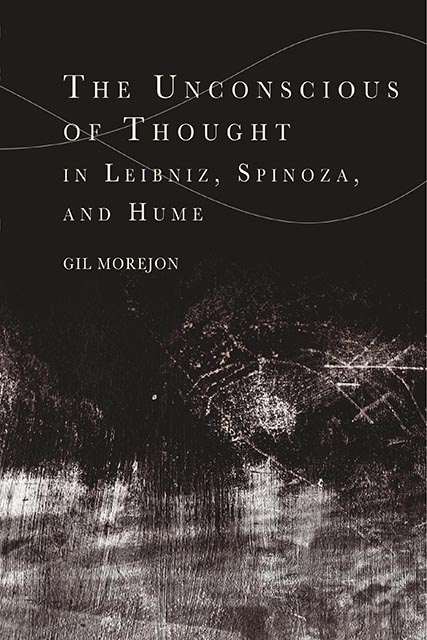Book contents
- Frontmatter
- Contents
- Acknowledgements
- Reference Conventions
- Introduction: Involuntarism and Philosophy
- 1 The Obscure Dust of the World: The Unconscious of Perception in Leibniz
- 2 Inevitable and Persistent Inadequacies: The Unconscious of Ideas in Spinoza
- 3 Deteriora Sequor: The Unconscious of Desire in Spinoza
- 4 The Gravity of Ideas: The Unconscious of Habit in Hume
- Conclusion: Obscurity and Involvement
- Bibliography
- Table of References to Leibniz, Spinoza, and Hume
- Index of Names
1 - The Obscure Dust of the World: The Unconscious of Perception in Leibniz
Published online by Cambridge University Press: 14 July 2023
- Frontmatter
- Contents
- Acknowledgements
- Reference Conventions
- Introduction: Involuntarism and Philosophy
- 1 The Obscure Dust of the World: The Unconscious of Perception in Leibniz
- 2 Inevitable and Persistent Inadequacies: The Unconscious of Ideas in Spinoza
- 3 Deteriora Sequor: The Unconscious of Desire in Spinoza
- 4 The Gravity of Ideas: The Unconscious of Habit in Hume
- Conclusion: Obscurity and Involvement
- Bibliography
- Table of References to Leibniz, Spinoza, and Hume
- Index of Names
Summary
‘Unconscious perception’ seems to be a contradiction in terms. What is perceiving, if not, one way or another, a conscious mode of experience? Is it not part of the definition of ‘perception’ that it is somehow conscious? If something happens in our body that does not affect our mind in any conscious way, does it make any sense to say that we ‘perceive’ it? This standard intuition, according to which perception necessarily implies consciousness, is given philosophical expression by John Locke in the Essay Concerning Human Understanding (1690):
Perception, as it is the first faculty of the mind, exercised about our ideas; so it is the first and simplest idea we have from reflection [i.e., not from sensation], and is by some called thinking in general. […] What perception is, everyone will know better by reflecting on what he does himself, when he sees, hears, feels, etc., or thinks, than by any discourse of mine. […] This is certain, that whatever alterations are made in the body, if they reach not the mind; whatever impressions are made on the outward parts, if they are not taken notice of within, there is no perception.
But Leibniz teaches precisely that there are unconscious perceptions. Not only, according to Leibniz, are there perceptions of which we are not conscious, since they are imperceptibly minute, but conscious perceptions themselves involve, are indeed constituted by, these imperceptible or unconscious perceptions. By distinguishing between the concepts of perception and apperception, Leibniz breaks decisively with the notion that perception is inherently tied to consciousness or that it implies an idea's being ‘present to the mind’. This in turn forces a profound reformulation of the problem of freedom, since unconscious perceptions as well as conscious ones play a role in the determination of a subject's desire and agency. Indeed, as we will see, the role played by unconscious perceptions in this regard must be, without exaggeration, infinitely greater than that played by conscious perceptions.
In this chapter, I will take up Leibniz's mature metaphysical writings in order to isolate the resources for thinking the unconscious of thought that his philosophy articulates.
- Type
- Chapter
- Information
- The Unconscious of Thought in Leibniz, Spinoza, and Hume , pp. 29 - 67Publisher: Edinburgh University PressPrint publication year: 2022



